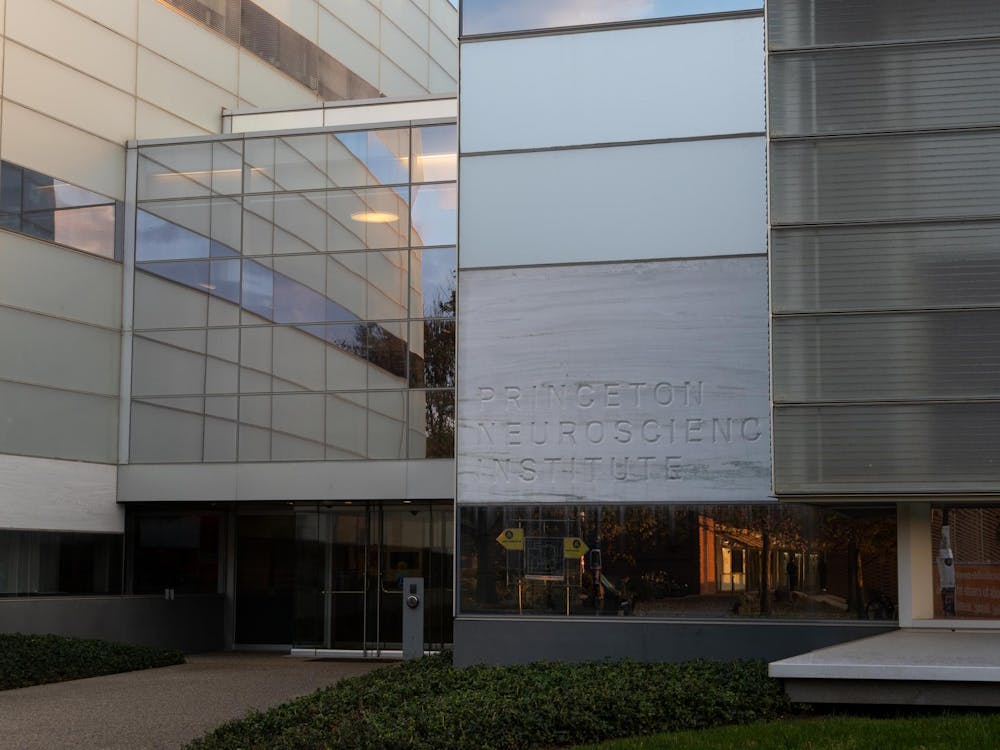Faculty members and students came face-to-face over the issue of race relations last night as conflicting ideas brought emotions to a head during a forum held in the Frist Campus Center theater.
A panel of faculty members — including professors Miguel Centeno, Patricia Fernandez-Kelly, Sarah-Jane Mathieu and Winston Soboyejo — came to the forum to share their feelings about how racial and ethnic diversity affects campus life.
All panel members except Centeno were raised outside the United States, and audience members challenged them as to whether they understand the issues minority students at the University cope with on a daily basis.
Fernandez-Kelly, who was born in Mexico and is of Spanish and Native-Mexican descent, said while she was growing up in Mexico City she connected more with her European roots. "It wasn't until I came across the border that my color darkened," she said.
Mathieu, who is black and French-Canadian, said minority students should "feel completely entitled to being [at Princeton]" and that they should "not apologize for being here."
Mathieu — who earned her Ph.D. from Yale last year — said when she was asked what it was like to be a minority student at a mostly white institution, she would always respond, "Well, I never had a problem being the smartest one in my class."
The panel members argued that students should not be as cognizant of race as they are of individual merits.
"Embracing diversity is not just embracing African-American students, but all students," Soboyejo said. Soboyejo, who was raised in Nigeria, said he believes "it's really not about looking at color, but about looking at people for who they are."

But Robin Stennet '01, who is black, said she was not satisfied with the professors' statements. She argued that, for her, race at Princeton is an issue that drains her energy every day partly because she serves on numerous race-related committees and focus groups. Close to tears, she asked what the University itself could be doing to improve the situation for students like her.
Some of the panel members tried to delineate the situation.
Fernandez-Kelly said that "once you're admitted to Princeton, you're no longer a minority in that sense of the word."
Mathieu agreed, and added, "Everybody here is a minority in the sense that you are part of an elite, incredibly financed, world-renowned institution."

Centeno said he believes that minority students must take their own initiatives to adapt to what some see as an inhospitable environment.
"I've had students come up to me and say, 'Man, this place is really Anglo!' " Centeno said. To such students, he said he would answer: " 'Where did you think you were going, Cal State-Fresno? Didn't you look at the pictures?' "
Centeno said for minority students, "the minute you walk in here, you have to stop being part of the oppressed." He said minority students need to "assume responsibility" and forge a path for themselves to be able to fulfill their full potential at the University.
"The biggest piece of advice I could give to minority students is really to get a sense of humor about it," Centeno said.
He pointed to the American military as a model example for minority success. In what he called a great "normalization effort," Centeno said the U.S. military had successfully blurred the lines between the races during the last half-century. He noted that 30 percent of the military is black and that 7 percent of generals are African-American.
He added, however, that Latino and black students historically perform poorly academically at college — an often frustrating reality for administrators, and a situation he believes demands additional attention.
"Clearly we are doing something wrong," Centeno said. "These students in secondary school are doing well, but once they get to the Ivy League universities, they're underperforming."







